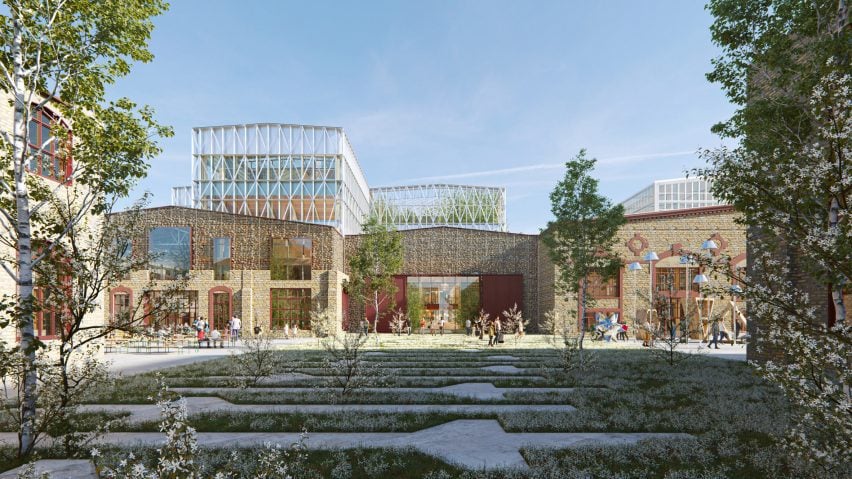Abandoned steelworks buildings will be repurposed into public space as part of Danish studio Cobe's design for a city district in Tallinn, Estonia.
Located in the historic Krulli quarter, Cobe plans to transform the former steelworks site while maintaining its industrial identity by reusing most of the existing structures.
The studio aims to attract jobs and city activity to the area by creating 600 homes, 3,000 workspaces and a mixed-use "innovation hub".
"The Krulli site is a treasure box of materials, buildings and urban qualities just waiting to be transformed and reused," said Cobe founder Dan Stubbergaard.
"The project is a showcase of transformation, reuse and the preservation of heritage structures, establishing it as a beacon of urban transformation and innovation in the heart of Tallinn."
Three abandoned buildings will be transformed into the district's central public space, which is expected to be completed in 2027.
Cobe will preserve the existing facades and build timber-clad offices within them, arranged in a chequerboard layout alongside cafes, shops, artist studios and exhibition spaces.
Steel trusses on the site will be reused as roof structures and cranes will be repurposed as bridges to create pathways connecting the three halls.
To minimise the carbon impact of the project, Cobe plans to work with as much reused material as possible.
"The project prioritises reuse goals that make both environmental and economic sense, forming the foundation of the Krulli identity," said Stubbergaard.
"A 'resource stair' approach establishes a hierarchy for all materials found on site and any new additions," he continued.
"Reuse is always the highest priority, followed by biogenic materials, and then re-usable materials, leaving carbon-intensive concrete as the last choice."
Stubbergaard founded Cobe in 2006. Other projects recently unveiled by the studio include its plans to introduce amphitheatre-like seating to the Danish parliament and The Opera Park garden island in Copenhagen's harbour.
The images are by Cobe.
Project credits:
Design architect: Cobe
Local architect of record: KOKO Architects
Engineers: Buro Happold, Estkonsult, Virtex, Rovalis, Edin and VPprojekt

